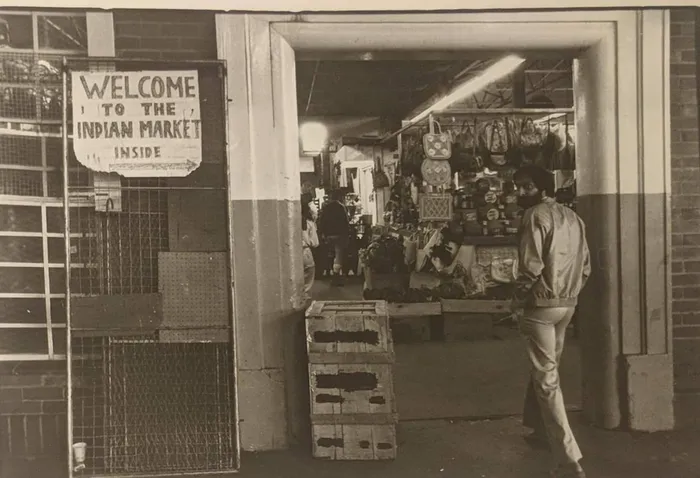Calling back memories of Casbah

The Grey Street Casbah is a place of nostalgia for many Durbanites. Once the heart of the city, it now is a shadow of its former self. Pictures: SUPPLIED
A walk down Durban’s famous Grey Street Casbah brings back many good childhood memories. The hustle, bustle of the city centre, the smell of spices wafting through the air. The atmosphere was electric. The Casbah was a beautiful place where people lived, worked and made friendship that has lasted a lifetime. Over the years things changed and sadly, the Casbah no longer feels the same.
I caught up with two of Durban’s “Casbah boys”, Buddy Govender and Ishaan Blunden. Mr Govender and Mr Blunden started the Facebook page, Grey Street Casbah on September 23 2011. The aim was to create a platform for people to share research, experiences and photos of the historic and fascinating “village within a city” - with people still living in Durban and abroad. Both Mr Govender and Mr Blunden’s families were born and raised in the casbah. The men were mentored by the late (award winning) author, Aziz Hassim who penned the Lotus People. Mr Hassim was also born and raised in the Casbah.
“Those of us who grew up in this neighbourhood all have memories of people, buildings, smells and sounds and this will live with us forever. This area was unique because of its diversity in race, religion and cultures - integrating to form a cohesive, tolerant, safe and respective community,” said Mr Govender.
The Casbah – while called Grey Street Casbah – is vast and has no defined boundaries. It covers Warwick Avenue, Greyville, the inner city itself and surrounding areas, Mr Blunden said. Mr Govender and Mr Blunden’s parents were raised in the Casbah and so were they – spanning a history of over 100 years. Mr Govender lived in Goodhope Centre in Queen Street and Mr Blunden resided at Kajee Moosa Building in Warwick Avenue.

“While the Casbah was home to many gangs throughout the decades, we don’t know the reason why some men preferred to live off the streets or chose that path. However, the men we knew that were gangsters were respectful and protective to the community. The Casbah was deemed to be the Indian Quarter of Durban. However, people of Indian origin lived, worked and owned business’s all over Durban prior to the implementation of the Group Areas Act which forced them into the Casbah,” said Mr Blunden.
Mr Govender and Mr Blunden reminisced about growing up there, the culture and how it has changed over the years.

“To say that the casbah was an ‘Indian’ area is totally out of proportion as (black) Africans and coloureds also lived and worked in the area. Whites were there after hours as well,” said Mr Govender.
“Now things have changed dramatically with foreigners having businesses in the area and many Indian origin businesses moving to the suburbs. There’s only a sprinkling of the original shops still there, the majority have since closed or relocated. One of the reasons why many businesses closed is that the children of the family’s that ran small businesses - like tea rooms, fabric shops, grocery shops and appliance repairs, didn’t find it suitable to run these types of essential businesses in this day and age.”
Sadly, Mr Blunden said, this has seen the demise of essential businesses that created jobs and provided them with bread, milk, newspapers, clothing and groceries. Along with that, the once buzzing social hub - where men would pop-in daily for a quick chat or just stand outside to meet their friends before heading upstairs to flats also stopped, said Mr Govender.
“The casbah shaped us as men, it gave us a sense of knowing we must work hard to provide for our families,” said Mr Govender.
“With the diversity, it also made us more respectful of others religions, race and culture. It kept us grounded - we looked out for each other. As a teenager I would often walk to my friends’ flats, with my LP’s (records). We would listen to music or just hang out. I would walk back home alone at 1am, along the streets and arcades. I never felt a sense of danger nor looked over my shoulder. The Casbah was well lit, clean and safe.”

Mr Blunden and Mr Govender said the old culture of the Casbah has changed dramatically with people moving away, business closing down and people passing on. However, they said, they see a new culture emerging. Another diverse melting pot, so to speak. However, the infrastructure is compromised daily - there’s no water at times, frequent electricity cuts, excessive noise and garbage piled up all over.
“It is sad to see how this once vibrant community has declined to this extent,” they said.